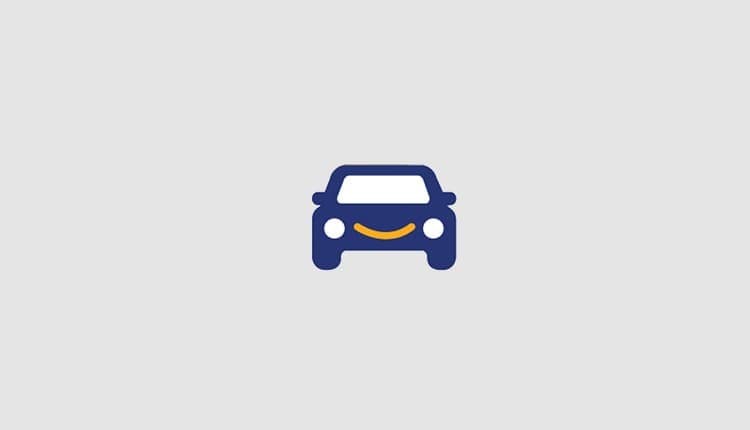
Do You Need Insurance on a Car That Doesn’t Run?
The pros and cons of keeping insurance on a broken-down car
Get quotes from providers in your area

Vehicle repairs are expensive and, if your car is broken down, you may be wondering whether you can save money by canceling your insurance policy. The answer is technically yes, although it’s important to cancel your vehicle registration or file an affidavit that you’re not operating the vehicle with your DMV first. Additionally, there are reasons to maintain coverage, even while you’re not driving your broken-down car.

Car not running? USAA still has you protected.
Find out why coverage matters—even when your vehicle is off the road.
Do You Need Insurance on a Car That Doesn’t Run?
If you are not driving your vehicle — because it’s broken down, in storage or for another reason — you do not need insurance. However, you should inform your state’s Department of Motor Vehicles (DMV) before canceling your policy.1
FYI
New Hampshire is the only state that does not require car insurance.
Here’s how you can cancel insurance legally on a car that doesn’t run:
- Contact your DMV. Contact your local DMV or relevant authority to cancel your vehicle registration or file an affidavit of non-operation. Some states require returning license plates while others may have online or in-person options to officially unregister the car. You cannot drive the car at all during this time.
- Inform your insurance company. Once you’ve filed necessary paperwork with your DMV, notify your insurance provider. Provide proof of registration cancellation and confirm the date for your policy’s cancellation. Ask whether any unused premiums are owed to you.
- Store documentation. Keep a record of all cancellation and/or affidavit documents for future reference.
If you fix your car (or buy another one), you will need to reregister and reinsure your car to drive legally. However, you may pay higher insurance premiums due to your lapse in coverage. Companies see any lapse in insurance coverage — even if you weren’t driving — as a high-risk factor. That’s one reason to maintain coverage, even on a broken-down car.
Reasons to Insure a Broken-Down Car
- Prevent a lapse in coverage: Lapses in car insurance coverage could lead to higher rates later on, so it’s wise to keep some level of coverage for the long term.
- Protect against damages: Although you’re not at risk of a car accident, you may still want to protect against theft, auto vandalism or a weather-related event like hail or flooding. Comprehensive coverage would reimburse damage to your vehicle from these events.
- Keep loyalty discounts: Many companies offer discounts for longtime customers or customers who have maintained coverage (even with other insurers) for a certain number of months or years. If you cancel your coverage, you’ll lose out on these discounts for future vehicle policies.
- Required by loan/lease company: If your broken-down car is a loaned or leased vehicle, the company may require you to have comprehensive and collision coverage.
How to Lower Insurance Rates for a Broken-Down Car
If your car breaks down, contact your insurance company and explain the situation. Ask about the following ways to lower rates for a broken-down car:
- Drop to comprehensive-only or liability-only coverage: For cars that are nonoperational or in storage, some companies offer policies with only comprehensive coverage. Ask your insurer whether this is possible (note: some companies only offer this option to active-duty military).
You can also save by dropping to a liability-only policy with state minimum limits. However, if your car is not paid off, your lender may require you to hold collision and comprehensive coverage. In this case, contact your lender and ask if they have any provisions or exceptions for broken-down or stored vehicles.
- Look into pay-per-mile insurance: Typically, pay-per-mile insurance charges a low base rate, plus a per-mile rate. This can save you significantly if you’re not driving while maintaining coverage. Nationwide, Allstate and Metromile are examples of companies that offer pay-per-mile insurance. This is a good option for individuals who haven’t paid off their vehicles and must maintain full coverage.
- Shop around: If your insurer is unable to help you lower your rates, compare quotes from different companies. Be sure to mention the car’s status to see if you qualify for special discounts or reduced premiums.
Alternatives to Insuring a Broken Down Car
If you decide to cancel your registration and insurance on your broken-down car, the following can help you maintain coverage and avoid rate hikes down the line:
- Buy a nonowner policy: A nonowner car insurance policy provides liability coverage when you’re driving a vehicle you don’t own and prevents gaps in your insurance history. Nonowner policies are usually cheaper than regular policies and ensure you’re covered if you borrow or rent a car.
- Get added as a named driver: If you’re borrowing a friend’s or family member’s car, ask them to add you as a named nonowner driver to their policy. Offer to pay for the difference in premiums, which is usually minimal. This allows you to maintain insurance coverage without owning a car.
Should You Suspend Coverage for a Period of Time?
Some insurance companies allow you to suspend your car insurance temporarily, for example until you get your car fixed or you buy a new one. However, you will still face the same issue around a lapse in coverage. Even if you suspend coverage, the gap in your insurance history could lead to higher premiums when you reinstate it. Additionally, if your car is financed, your lender may not allow you to suspend coverage.
Other Circumstances: Do You Need Insurance?
Maybe your car isn’t broken down but is in storage, is never driven, and/or has an outstanding loan. What do you do regarding your insurance policy in those situations?
- Car is in storage: Similar to a broken-down car, even a parked car in storage should have some level of insurance, especially comprehensive coverage.
- Car is never driven: The same principles apply, especially if your car is parked outside, where it could be damaged by things other than cars, such as hail.
- Car has an outstanding loan: Unfortunately, you’ll still have to pay the rest of your auto loan on your car, even if you never drive it. Whether or not you choose to refinance your auto loan or file for bankruptcy in worst-case scenarios, you should still have comprehensive coverage on your car at the very least. And if you drive your car, you must meet your state’s minimum requirements.
RELATED:
If your vehicle was deemed a total loss after an accident, you may be able to salvage and insure your vehicle.
Recap
It’s wise to maintain some form of insurance coverage, even if your car is broken down. You can save by dropping unnecessary coverages or switching to pay-per-mile insurance. If you decide to cancel your policy, make sure to contact your DMV to cancel your vehicle registration or file an affidavit of non-operation first to avoid penalties. Consider a nonowner policy or getting added as a named driver on another policy to maintain coverage. Maintaining a cheap auto insurance policy will save you money in the long run.
Citations
Do you need insurance for a car in storage? Progressive. (2024).
https://www.progressive.com/answers/insurance-car-in-storage/
